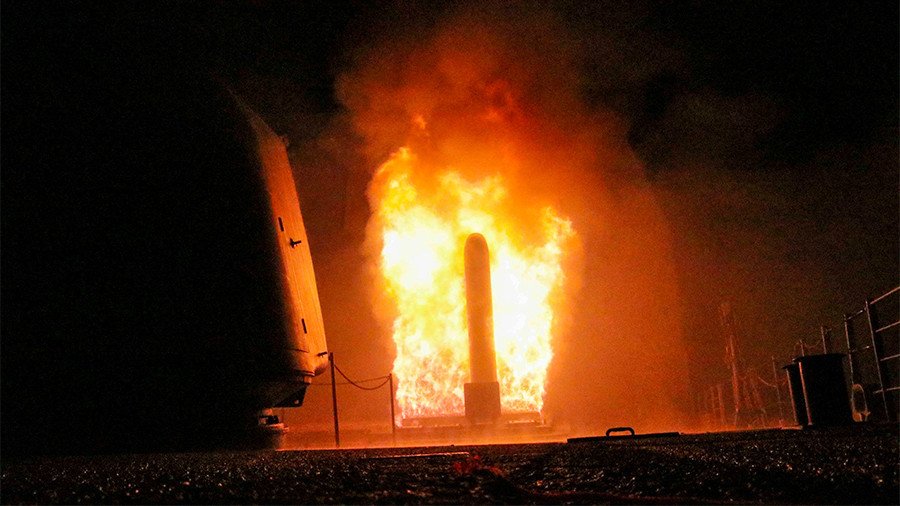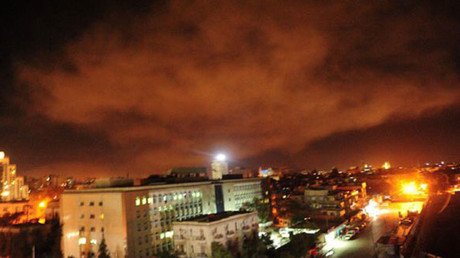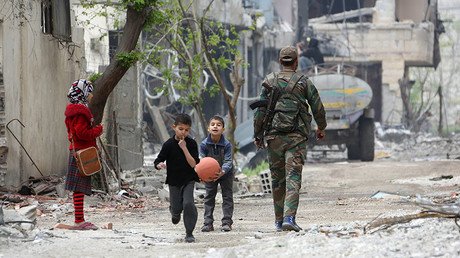Pentagon says Syria strikes are 'one time shot' to send strong message to Assad

US Defense Secretary Jim Mattis described Saturday’s strikes on multiple targets in Syria as “harder” than those in 2017, but said that no further launches were planned for the moment.
READ MORE: US, UK & France launch 'precision strikes' in Syria
"Right now this is a one time shot and I believe it sent a very strong message," Mattis said during a press briefing in the Pentagon, adding that there may be further attacks against the government of Bashar Assad “should he decide to use more chemical weapons in the future.”
Specifying that more than twice as many weapons were fired as in April 2017, Mattis said that the aerial assault sought to “destroy the Syrian regime’s chemical weapons research development and production capabilities.”
The targets were described as a scientific research center in Damascus, and a pair of chemical storage facilities in close proximity to each other in Homs, a large city north of the Syrian capital.
"We were very precise and proportionate but at the same time it was a heavy strike," Mattis told reports.
Mattis added that the US, which has used manned aircraft to launch its missiles, had "gone to great lengths to avoid civilian and foreign casualties," while Chairman of the Joint Chiefs, General Joseph Dunford, who also took part in the briefing, said the Pentagon "specifically identified targets” to “mitigate the risk of Russian forces being involved."
Dunford said “normal deconfliction channel was used to deconflict airspace” with Moscow, but that the US did not “coordinate targets” with Moscow.
The general said that US rockets encountered some surface-to-air “activity” but confirmed that no losses were sustained on the attacking side.
Mattis said that he was “confident” that chlorine was deployed during the April 7 incident in Douma, and did not “rule out” that sarin, a nerve agent, had been released. Dunford mentioned that one of the Homs facilities contained precursors and production equipment for sarin, though did not clarify if it had been in active use after Syria destroyed its declared chemical weapons arsenal in 2013.















